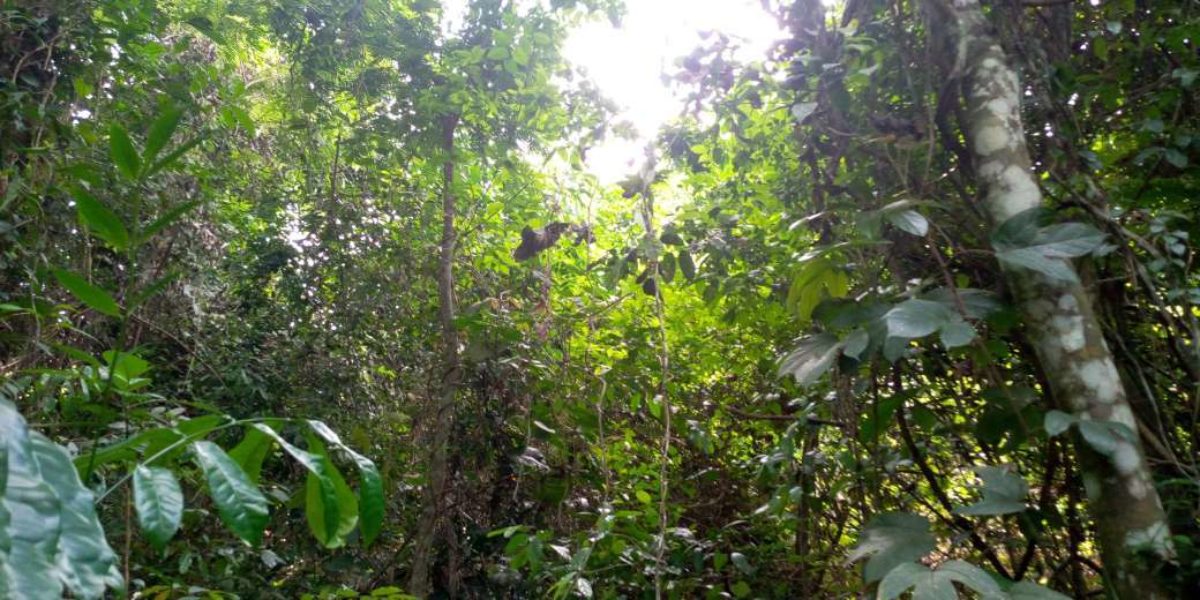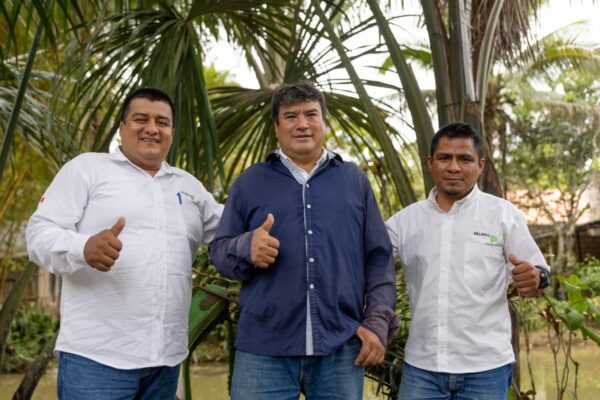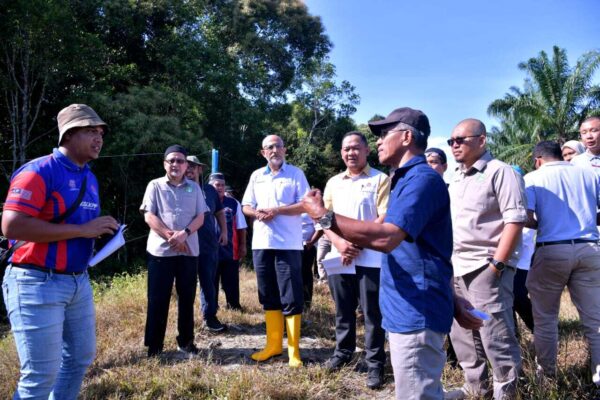Since August 2017, Mondelez has been working with Earthworm Foundation to identify forested regions where it buys cacao from in Ivory Coast; and develop a land-use plan to reforest and preserve these lands. After having done this in Méagui, Nawa region in 2018, we are now continuing this work in Gabiadji.
The long-term goals of this work in Gabiadji, which began in October 2019, are to protect forest relics and natural ecosystems in Mondelez’s supply chain, and contribute to the Ivorian government’s efforts to regenerate forest cover; mitigating climate change impacts in the process.
Our plan to identify forests in Gabiadji uses the High Carbon Stock (HCS) Approach, with a focus on compensating cacao farmers for forests they choose to conserve. The approach is based on new earth observation technologies (Geographic Information Systems) and a participative approach, thus making it easy for communities to be involved in planning how to use their land, said Ibrahima Fofana, project manager at Earthworm Foundation.
“The HCS Approach also makes it possible to save important forest relics and restore areas that are badly degraded, as well as areas that rural communities want to conserve. This can contribute to the sustainability of cocoa,” he said.
HCS studies involve three broad phases – desktop analyses to identify potential conservation and community areas, field visits to ground-truth these findings and collect field data, and a final analysis of all this data that results in a land-use plan. This plan allows companies to understand where to focus their efforts – either in terms of conservation or development.
Field work involves visiting potential forest sites integrated into a GPS (Global Positioning System). At these sites, we do a floristic inventory to find out the plant species in the area. Thereafter, we measure the circumference of identified trees, said Dr. Yao N'Guessan Olivier, a botanist and lecturer at the University Centre for Applied Research in Remote Sensing (CURAT in French), a technical partner of Earthworm.
“This data will make it possible to assess the richness of flora and highlight species with special statuses – endemic, threatened, endangered, etc.,” he said. “It is essential to assess the carbon stock of these forests; to know how they contribute to maintaining floral biodiversity and sequestration of carbon, which is essential to mitigate the effects of climate change.”

Involving smallholders for effective forest conservation
“Since smallholders own these forested lands, it is important to involve them and see what we can do for them. To see if they agree to keep forests standing and produce cocoa that contributes to forest conservation rather than destruction,” Dr. Yao said. “In doing so, smallholders are the winners. Because if these forests are kept, this will not only contribute to the conservation of biodiversity, but also promote a microclimate favouring agriculture.”
However, the success of such an approach requires building trust with smallholders. It also requires showing them what is in it for them.
"Farmers are aware of the effects of climate change but, at the same time, want to have concrete plans on how they would benefit from protecting forests," said M. Koffi, president of the management board of ECOGA, a farmer cooperative.
These proposals must be linked to productivity and the improvement of their living conditions, said Mr. Sylla, Director of CASIB, another farmer cooperative in Gabiadji. In the end, it's a question of survival.
"We want to keep our forests. But while we keep them, how do we live?" asked Babo Soro, head of the Gnyti village, located about 10 kilometres north of Gabiagui.
Faced with this situation, Earthworm conducted a socio-economic study to understand how best to help farmers if they were to conserve forests in their lands. According to Stéphane Kouakou, supervisor at Earthworm Foundation, the study aimed to understand the socio-economic situation of actors who directly or indirectly deforest and suffer the negative effects of it, as well as their perception of the environment.
“This will lead to solutions to engage them in conserving remaining forests, reforesting and agroforestry,” he said. “Such an approach not only builds trust with communities and smallholders but is also important in gathering reliable information.”
Confined to their homes because of the COVID-19 pandemic, our teams are now at the data-mining stage – analysing and discussing data through phones, Skype and email. Final results will be documented in a report and shared with actors in Gabiadji during a workshop to be held once the threat from COVID-19 lessens.


